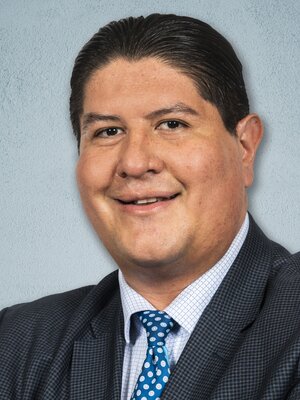
Originally from Central Mexico, Professor Joaquín Rodríguez-López grew up in Monterrey, the third-largest city in Mexico, famous for its industrial centers and mountains. He attended Tecnológico de Monterrey, one of the most prestigious institutions in Mexico, widely known for innovation and engineering. Even though Monterrey Tec had a relatively small chemistry program, López said that he was always lucky to be surrounded by inspiring mentors.
During college, he was intrigued by electrochemistry, which allowed him to perform complex chemical reactions by using instruments and connecting wires. Currently an associate professor in the Department of Chemistry at the University of Illinois at Urbana-Champaign, his inspirational journey from Monterrey to Urbana symbolizes the American Dream at its core.
With encouragement from his undergraduate mentor Professor Marcelo Videa, López applied to the University of Texas Austin, where he obtained his PhD under Professor Allen J. Bard, who is considered the "father of modern electrochemistry." He completed postdoctoral studies at Cornell University (2012) before joining the faculty at UIUC.
In May 2021, Rodríguez-López was named The J. Andrew and Susan S. Langan Professorial Scholar (for exceptional mid-career faculty members in any area of the college). His research group combines interests in electroanalytical chemistry and energy materials by developing chemically-sensitive methods for studying ionic and electronic reactivity in nano-structures, highly-localized surface features, and ultra-thin electrodes. Joaquin’s group aspires to build a dynamic and diverse environment for research that generates original concepts for high-performance energy technologies.
In 2020, The American Chemical Society’s division of Analytical Chemistry chose Rodríguez López as the recipient of the 2020 Arthur F. Findeis Award for Achievements by a Young Analytical Scientist. Focusing on fundamentals of electrochemical energy storage and conversion in his research, his group develops chemically sensitive tools for exploring ionic and electronic reactivity in nanomaterials, leading to strategies for powering next-generation batteries. In 2018, he was named SN10 list, the top 10 scientists to watch published by Science News.